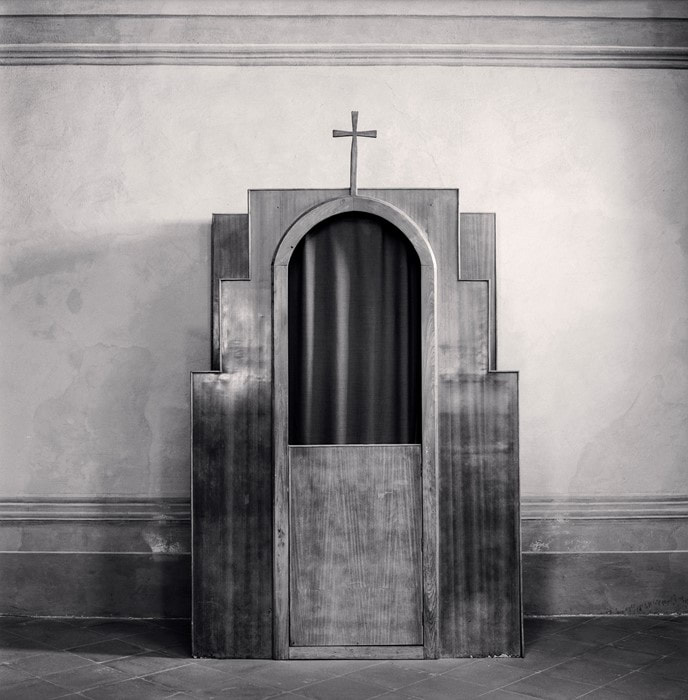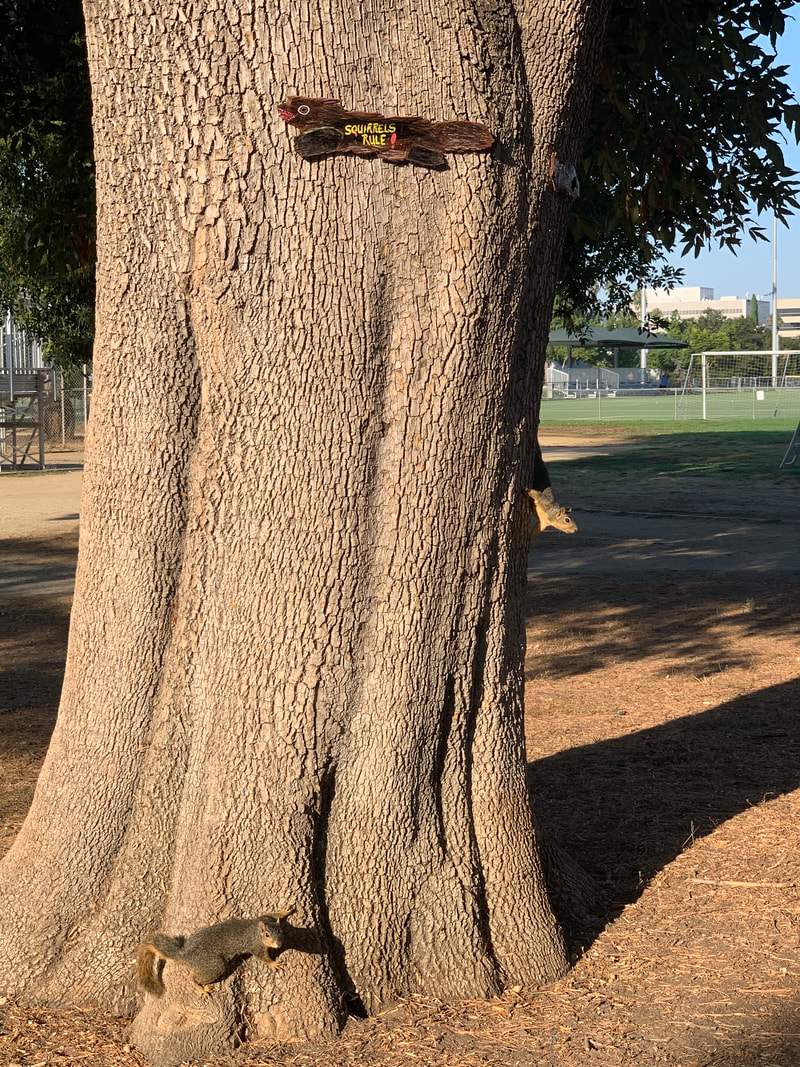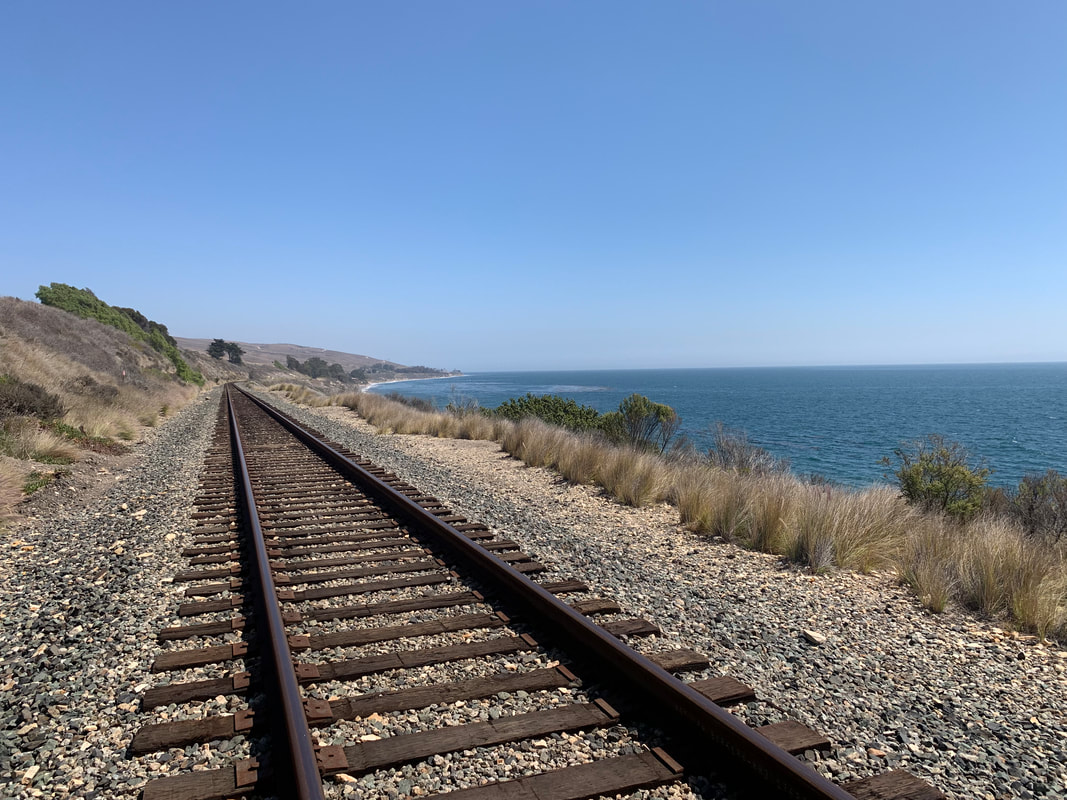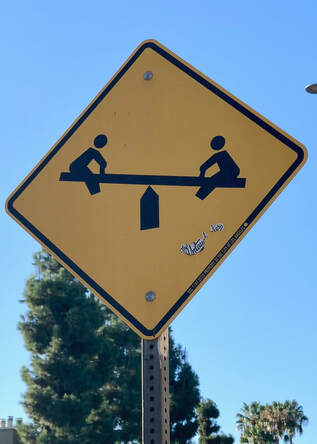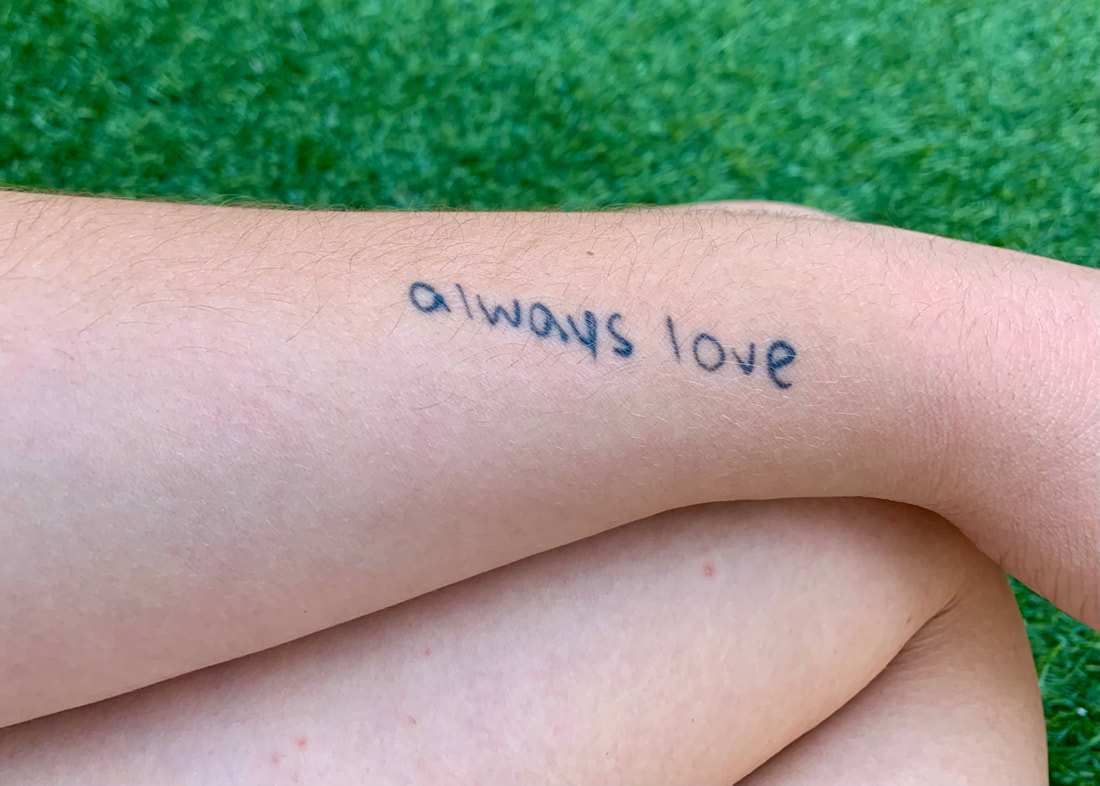Psalm 32 speaks to the goodness and graciousness of God, who forgives our wrongdoings, and covers our debts. A God who invites us to experience real joy and happiness that only Divine love can offer.
We don’t know who wrote this, or what he did. But at some point he realized that in holding on to the weight of his sin, his body wasted away. Yet, in his confession his wellbeing was restored. I remember the day we learned I had cancer. As far as I was concerned the only option was to remove it. If I held on to it I would have first lost my voice, then my ability to swallow, and then eventually my life. In the same way, holding onto something you’ve done can cause all sorts of problems, physically, mentally, and of course, spiritually. But there’s good news. God welcomes our confession and even uses it as a balm to heal the hurt we’ve done to others and ourselves. Now, in the religious sense, confession can mean a couple of things. It can be speaking of ones beliefs - I am a Christian, I confess my faith in Christ. Or the more popular one that means admitting one's "sins," or misdeeds. Both are powerful in that they can give us a better understanding of ourself, of forgiveness, or both. Confession also helps in our healing. As Phycologist Lloyd Thomas notes, “Confession serves as a gate to let ourselves out, and let in whatever we need.” God invites us to kick open that gate and let go of our past mistakes so we can receive from God what our heart desires the most.
watch the message here
In this space between heaven and earth, you are given a choice. You can be one who is penitent. Or you can one who pretends.
Last night we went to a costume party for our brother-in-law’s 50th birthday. Kathleen went as the TV waitress Alice. I went as Mel, the surly cook and owner of the diner she worked in. It was fun being in character, playing someone else. In fact, it was nice to be crabby and cantankerous without somebody chastising me. Once a year we get a free pass to pretend we’re something or someone we’re not. But come the next day, we have to remove the masks and return to reality. Is it really coincidental that Halloween is followed by All-Saints Day? But lately it seems more and more people, including many Christians, are choosing to keep the disguise on. Do they think people won’t noticed? Tomorrow night our neighborhood will be filled with kids in costumes. Some will pretend they are the real Batman, or Ariel, or some Jedi character. I’ll play along when they knock on the door, but even I know the real Batman isn’t a 4 year old. Just as we can see through people’s disguises, God can see through ours. So why pretend? What’s the point of wearing your Sunday best if the cancer of hatred, resentment, and judgment continues to fester in you? When confronted by those who had clothed themselves in religious piety, Jesus reminded them that it’s not what goes into one’s mouth that defiles a person, but what comes out their mouth. The stuff within them, that proceeds from the heart. (Mt. 15:10-20). God looks at our heart. And no mask or costume will hide our truth. So what’s the point of dressing up like a Christian if you can’t act like Christ? God sees all. So let it go. A swami on TikTok talked about a pheasant and a bull who are out in the field looking at a great tree. The pheasant confessed to the bull how she wished she could fly up to the top just once in her life. The bull told her if she ate a little bit of his dung every day, she’ll be able to reach the top in no time. Wanting so badly to be up there, the pheasant took a little bite of the bull’s dung and flew to the first branch of the tree. The next day the pheasant took another little bite and went up another branch. And did this every day until she reached the top. When a farmer noticed the pheasant at the very top of that beautiful tree, he pulled out his shotgun and killed the bird. The moral of the story is this: a bunch of bull crap might help you reach the top but it certainly won’t keep you there forever. We can’t go through life pretending. Eventually we will be exposed. Like the psalmist realized, it’s better to go through life with a clean and penitent heart than it is to pretend or B.S. our way through it. As Christians our goal is to be like Christ who was filled with the light and love of God. Jesus never tried to disguise or hide who was. So when the world saw him, they got a glimpse of God’s unfailing and always present glory. Jesus’ ministry is ours to continue. It needs to be real and authentic. And it needs to be shared because there are still people who don’t know God’s love, people who are crying out for it but just can’t see it through the darkness of their pain and suffering. But here’s the thing: if we try to fake it, trust me, they’ll know we’re not real. What will that teach them about God’s glory? In the gospels, Jesus sends his disciples out like sheep among wolves. He did not send them out to be wolves disguised as sheep. As the Body of Christ, this church is not sent to pretend that life is good. We are sent to proclaim God’s love and grace to all people because life isn’t always good. We are sent to bring good news, so those who are hurting can be healed; so those who are hungry can be fed; so those who cry out for grace can find forgiveness and peace. Like Thomas noted, if we are to be filled with all the goodness of God, we have to open the gates of our hearts and let out all the crap that’s taking up space and keeping us from receiving what God has to give. We have to empty ourselves, so that we can be filled with God’s incarnate glory until it spills out all over the world. The first step there is a penitent heart, one that comes clean before the Lord. As you leave here today, entering that space between confession and healing, I hope that you’ll take a moment to remove whatever mask you have on, trusting that God’s unconditional love will not only welcome you as you are, but will give you what you need. “Whether you begin your confession with "Hello, my name is Bill and I am an alcoholic" or "Father, forgive me for I have sinned," or "Hey honey, I need to talk to I about something horrible I've done" the benefits of confessing can be freeing, strengthening and releasing.” (Thomas) It can be the healing balm needed for both you and others. Thus, we must make confessing a natural part of our worship and life, because it is what gives us real life - the kind of life that goes above and beyond the one we’re used to living. The good news of this psalm is that it frees us to shed the masks we hide behind and allows us be who God made us to be. It invites us to let go the B.S. and fall gracefully into the heart of the Divine One, who makes our joy complete. For “Happy are those whose transgression is forgiven, whose sin is covered.” Amen. Work Cited Thomas, Lloyd. The Benefits of Confessing. May 19, 2015 (accessed on October 28, 2022).
0 Comments
The more successful they were, the further apart the were. This struck me as odd because we often think that the better we are at something the closer we are to achieving our goal. As I watched this duo push one another further away, I started to see how they were filling that space between them with purpose and joy. The wider that gap between them came, the more space they had to fill with happiness, laughter, and love. It seems the distance between them only made them closer. I noticed this to be true about the relationship with my daughter who is away at college. Now that she is 123 miles away from home, we seem to talk more. And engage in one another's lives differently. I like to think she agrees that we have grown closer because the distance that separates us. It's not easy being apart from those you love or desire to be around. I think we all discovered that during the height of the pandemic when we were isolating at home, or keeping our 6 feet of distance from one another. It's harder still when you want a hug but can't because of the distance.
At Anamesa, we are always looking for ways to be closer because we are far apart. But what if we started looking at the distance between us as nothing more than a bigger space to do the work of the church? Like casting a wider net to reach more people to love.
Many struggled with this when their churches went into lockdown. But they didn't have to. They just needed to rethink they way they do things by embracing that space instead of rejecting it. While it seems counterintuitive for a church to be further apart than closer together, it makes sense to expand our viewpoint and widen the gap between our hearts so that more people can come discover God’s grace and glory. Anamesa is more than just a space we occupy. It's a way to live into that space as a bridge between this world and the one to come. I often use this example to explain it in simple terms. Let's say you see someone hungry, and you are moved to feed them. It could be a homeless woman whom you give money to, or a family down on their luck that you buy groceries for, or it could be a friend who's homesick that you prepare a meal for. That's Anamesa. Filling the space with love and joy by living out the gospel in real time. Between the number twenty-three and twenty-four there was nervousness and fear of failing, or having to start over again. But there was also courage and commitment to try. For me, it's what happens in that space and to that space when we try to do something beyond standing there hoping for someone else to act. I think what makes us stronger as a community and as a people isn’t our proximity but our willingness to walk together with the love of Christ, who brings us together as one body no matter how far we are apart. I hope this helps you rethink the space you are in - physically, mentally, emotionally, or spiritually.
God’s people have witnessed Jerusalem and their beloved Temple be completely destroyed by foreign invaders. And now they’ve been hauled off into exile in Babylon. There is a sense of dread and abandonment among them. And, as you can imagine, all hope seems lost.
Speaking through a teenage prophet, God offers up some words of encouragement - telling the exiles to hold tight, “Surely I know the plans I have for you.” Sadly, I believe this is where we get that platitude “Don’t worry, God has a plan for you.” (I'll admit I hate that saying, just saying.) This particular verse of promise and hope is bittersweet for me. On one hand it gives me the assurance that whatever circumstances I’m facing today, God already has a way to change my tomorrow. God isn’t going to leave me out to dry. On the other hand, what happens when my plans and God’s plans don’t match up? No one plans for a child to pass away at a young age. Instead, we plan vacations, graduations, and holiday festivities. Some brides plan weddings months and even years in advance. But nowhere in that plan is a trip to the emergency room. So, whenever I hear someone tell a person in grief that “God has a plan” it makes me want to scream. How does a God of infinite love have a “plan” that involves wiping out thousands in a tsunami? Where does cancer, or child abuse, fit into any blueprint of life? “If every life event is being directed and controlled by God,” writes Ben Cory, “then God is really bad at making plans.” It’s hard for me to believe God has a master calendar where everything is divinely mapped out like a weekly dinner menu. In a world of such brokenness, this simply cannot be true. Because then it would seem like God is just passing the time by making bad stuff happen. Why would God do that? I’m not saying God isn’t in control of all life, there’s plenty of scripture, including this particular passage, that give us that certainty. Notice what the Lord said though through Jeremiah, “I have a plan for your welfare, and not your harm, to give you a future with hope.” God cares for our welfare but isn’t really concerned for our comfort. While God promises us hope, there is no promise it’ll be easy. Real hope, it seems, is born through our pain and suffering. That’s the cruel irony of faith. It’s often only after we lose something dear to us that we rely on God or call on God for help and salvation. So, next time you try to comfort someone by saying, “God has a plan,” you might want to add, “so buckle up because it’s going to be a bumpy ride.” As for Jeremiah, he is literally standing in that space between God’s promise and hope, trying to make sense of it all. His home has been wiped out. His families and friends have been killed or carted off. The prosperity God’s people once enjoyed is no more. Life seems hopeless. Why continue onward? Jeremiah writes this letter in part because he's responding to another prophet, Hananiah, who has told everyone that God is going to restore Israel within two years. This got the people excited. It gave them something to look forward to in the immediate future. The one problem with Hananiah’s prophecy is that it simply wasn’t true. It was a political stunt. God had no plan like that. Instead, God said relief would come but not for another 70 years. Jeremiah instructs the exiles to settle in, to get married, plant vineyards, and to seek prosperity in Babylon. Yes, salvation and restoration will come. But it’s going to be a long and bumpy ride, so buckle up. The good news I see isn’t in the length of time it takes for God to do things. It’s in the promise that God doesn’t leave us waiting in vain. God said, “When you search for me, you will find me.” Not only does this give me hope, but it allows me to trust that God is with me in every situation. God never leaves us to deal with our mess alone. The reason is simple. God has always desired a relationship with us. From the first pages of the Bible to the last, God is always ready to meet us where were are, - loving us no matter what. The way I see it, God doesn’t have a grand plan as much as God has a will and desire for us. It’s God’s desire to love us unconditionally. And it’s God’s will for us to do the same with one another. But this doesn’t mean we will abide. Still no matter where we are in life, whatever good or bad choices we make, we are always in the fullness of God’s love to help us “thrive in the midst of whatever it is we are going through.” (DeMuth 2015) In this space between yesterday’s promise and tomorrow’s hope, we are given the assurance that we are never beyond the boundaries of God’s love. Whatever problems you’re experiencing, whatever pain you’re going through, our Lord says seek me faithfully and you will find me there. When life pushes you down, God is always ready to lift you back up - loving you through every heartache and pain. This is good news because, as most of us can attests, it’s in these difficult places we move closer to and rely more on God’s power. My most fruitful growth has come through experiencing difficulties with God and not by escaping them. Just as Jesus demonstrated on Calvary, real hope is birthed through a tremendous amount of pain and suffering. Before the wondrous beauty of the resurrection there was the horrific brutality of the cross. In spite of all the darkness we experience, we must never lose sight of that light of hope and the bright future that shines far beyond the parameters of this life. Yes, it’s going to get bumpy from time to time…so buckle up. But know that as you move through it there is a divine light leading the way forward. God is here, in our midst, for anyone who calls out. For it is God desires to be with us, to love on all of life. And the will of God is for us to do the same…with all of life…the good and the bad. If God does have a specific master plan, then I believe it would be what John the Evangelist figured out: Love one another as God first loved us (1 John 4:19). It’s through the love that God gave to us in Christ Jesus, that all of life is restored to its fullness and completion. You see, I don’t believe the resurrection was not an afterthought. I think it was intentionally created for us, so that we could remain in relationship with God, not just in Anamesa but throughout all space and time. God’s desire and will for the world was well-planned ahead; giving us exactly what we need to get us through the struggles we are bound to experience. By this simple act God will redeem and restore our fortunes, bringing us back from where we came - the very heart of our Salvation. As Henri Nouwen so prophetically proclaimed, “If we believe love comes from God, then love will return to God. When we die, we will lose everything that life gave us except for that gift of love.” It is Love that binds us to God. It is Love that binds us to one another. For Love is the beginning and the end of life’s greatest and only real plan. May we use it always as the foundation for becoming who we are and always will be God’s beloved sons and daughters. Works Cited A revisit on a sermon entitled Plan Ahead on October 16, 2016. Blumhofer, Chris. relevantmagazine.com. December 10, 2010. (accessed October 13, 2016). Cory, Benjamin. patheos.com. May 24, 2016. (accessed October 13, 2016). DeMuth, Mary. www.marydemuth.com . Sept 10, 2015. (accessed Oct 13, 2016).
But a teeter-totter is not only reliant on the two participants. There is a mechanic component as well that makes it this classic playground ride something kids might want to play on.
In that space between the two poorly drawn figures, is a fulcrum which holds the board of the teeter-totter up. Without it, the ride is nothing more than a lifeless piece of wood. Which unless you are a kid building a fort or a tree house isn't the funniest thing to play with. But once you put the fulcrum in its place, the two kids can both teeter and totter for as long as they want. So, what's all this have to do with anything? Well, the way I see it, the plank of wood is Anamesa (the church) holding the space between two people who have come together for a purpose. In the middle is Jesus who stands between them to make life balanced and fun. Both rely and need one another if they are going to do much. So, you see how you play an important role at helping Anamesa (the church) be a place where Christ is not only worshipped but always present? Be it on Sunday, Thursday, or any day of the week, when you join us, we become the church. And not just any church, but one that functions fully and faithfully with the Divine allowing the space to have purpose and meaning. When you are with me in this space of Anamesa, I know Christ is also present to teach us, guide us, heal us, and keep us balanced as we tetter-totter on life’s playground.
Eventually, I learned an important lesson from that traumatic experience. Life is a fragile gift. It seems so obvious now but back then it was all about living hard and playing harder. It was all about me, or about us. And tragically, it often takes something like losing something you love to wake you up to the reality that what you have can be taken away in a blink of an eye.
Disastrous events like hurricanes and earthquakes, school shootings, are strange, ugly gifts in that they remind us that the only guarantee in life we have is this one single second. That’s all. Just this one second right now. In the space between our first and last breath, this one moment is our only assurance that we will live to see the next second. It’s only this small, seemingly insignificant moment that really matters in the big picture. It’s this single second we cling to hope by keeping our faith in the One who loves us onto the next space and time. In the 13th chapter of his first letter to the churches in Corinth, the Apostle Paul speaks of God’s love like this:
Paul wrote, “Love never ends.” If you have ever been in a relationship that hasn’t worked out, it’s easy to roll your eyes at Paul’s declaration. But what if we look at his words from a different perspective? What if we replace the word “love” with “God,” then I think we would gain a better perspective of what Paul is saying.
John the Evangelist wrote, “God is love” (1 John 4:8). If we believe God is infinite. Then so too is love. God’s love is eternal, never-ending. The author of the psalms constantly describes God’s love as “steadfast” and “everlasting” and “enduring.” God is always there, whether we know it or not. And so too is God’s love. Henri Nouwen, calls God our first love. This is what John also discovered when he wrote, “Let us love one another because God loved us first” (1 John 4:19). We are born with God’s love already in us. We don’t earn God’s love or deserve it. Like grace, it’s given to anyone and everyone. God gives us love, so we can live it and share it with one another. Knowing this should be enough to stop us from hating and killing each other. But sadly, it’s not that easy. Very few people know that they are loved without any conditions. It even caught the prophet Micah off guard. He wrote, "Who is a God like you, pardoning iniquity and passing over transgression? You don’t retain your anger forever because you delight in steadfast love." (Micah 7:18). When Fiona was born, I finally understood what unconditional, steadfast love meant. No matter what she did, I was going to love her. The twenty-one years since then would prove that giving unconditional love is not as easy as it sounds. Like I learned during my daughter's tween years, love requires a lot of practice of being Patient, Persistent, and Present. These are three attributes of love that I want to talk about next. In our reading Paul wrote, “Love is patient.” Throughout scripture God is described as patient and loving, kind, gracious, forgiving, and merciful, and every compassionate quality we could ever imagine. Our job is to learn from God’s ways and treat others the same. Which is exactly what Jesus did. Jesus not only showed extreme patience with his disciples who constantly screwed-up like teenagers, but he was also patient to the multitudes who constantly came to him for help or to challenge his teachings. As Jesus clearly demonstrated, love requires a lot of patience. In Proverbs we find, “It’s better to be patient than a warrior, and better to have self-control than to capture a city” (Prov.16:32). If only Fiona knew this as a child, her sister probably wouldn’t need therapy. Each second is a second chance to make things right. In the space between living and loving we are only given this moment to make a difference. Despite the obstacles that get in our way, God still needs us to show up. So to stand in love one must always be persistent. Paul wrote, “Love bears all things, and hopes and endures all things.” From dealing with family to facing our foes, we must preserve with love leading the way. But the more we get hurt by love, the harder it can be to move forward in it. But the prophet Jeremiah, who in the midst of suffering unbearable hardship, wrote, "The steadfast love of the LORD never ceases; his mercies never come to an end…" (Lam. 3:22). As Jeremiah discovered, God doesn’t give up on us - even when we give up on God. What then can we learn from God’s way that might help us love others? Jesus had only had one mission…to usher in God’s kingdom. Although he faced constant opposition, pushback, betrayal, and even crucifixion…Jesus did not give up. And the world has been better for it. I’ve lost count of how many times I threatened to sell my kids to the Irish gypsies. Yet, no matter how thin they stretched my patience, I persevered. For this I am forever grateful to my wife who made sure I did. In the Epistle of James it’s written, "Count it all joy when you meet trials of various kinds, for you know that the testing of your faith produces steadfastness.” (James 1:2). Therefore, "let us not grow weary of doing good, for in due season we will reap, if we do not give up" (Gal. 6:9). The space and time to do good is right here. In this space between living and loving, God never ends. Love never ends. Both remain ever-present if only because they are always present in us. Each one of us has love to give. So, if our job is to learn from God’s ways then we must learn to always be present, because this is the space where God needs us make love grow. It doesn’t matter if we forgot to love yesterday, that time has come and gone. And worrying about if love will show up tomorrow only takes the heart’s focus off showing it in the present moment, where real pain and suffering happens in real time. Jesus remained ever present to people needs and hurts. When he saw people suffering, he immediately showed compassion for them. He never said, I’m sorry, you’re too late, or come back tomorrow. Jesus constantly set aside his own needs to serve others where they were. In doing so, he ushered in the kingdom of heaven so that all people could feel the fullness of God’s love. Jesus shows us how to experience abundant life now, and not just at some later date. This requires us to be present - to see every second of life with open eyes, and an open heart. It was in this practice Thomas Merton discovered “the secret beauty in life.” That is to say there’s something inherently beautiful inside every single being. That inherent beauty is Divine love that flows in us and through us. There’s great power in this way of seeing life. As Merton taught, when we recognize that the secret beauty of Divine love is not just in us but also in others, we’re less apt to cheat, fight, or kill them. When we recognize that we are all born with inherent beauty, then we can be patient when someone throws a fit. We can be persistent even though we want to throw up our arms and walk away. We can be present without insecurity, or fear, or anxieties getting in our way. With God’s endless and infinite love in us, we can fearlessly love one another. In this sacred space, love is our ministry. Love is our motivation. Love is our moment to let God’s glory be felt by others who may not know they are loved no matter what. In this moment of time, we have been given, love must be our single goal. It doesn’t need to be perfect because only God’s love is perfect. Heck, I don’t think God wants our perfection. God only wants our willingness to put love to practice in all that we do. When we practice patience, love will come. When we practice perseverance, love will overcome. When we practice being present, love will come out, flowing in and out of us. For wherever God is, there is love. And love never ends.
According to scripture, we are all made in God’s image, which means we all share the same divine DNA with Jesus, and Francis, and so many other saints before us. That DNA, many have argued, is God’s greatest love made manifest in all things. Which means that DNA has a name – the Christ.
By looking at the world around us through this Christ lens, Francis invites us all to participate in God’s Kingdom in ways that truly bring Christ to life in all that we do. In today’s reading from the Gospel of Luke, the disciples doubt they have what it takes to accept such an invitation. They feel like it will take more faith than what they have. In addressing their concerns Jesus gives us this answer. READ Luke 17:5-10 here.
In his critique of Christianity, G.K. Chesterton said, “The Christian ideal has not been tried and found wanting. It has been found difficult and left untried.”
Richard Rohr was less kind when he wrote, “After two thousand years of studying to be like Jesus Christ, we’ve managed to avoid everything that he taught to do.” Both men, however, would agree that if anyone has ever come close to living up to that Christian ideal, it was St. Francis of Assisi. The son of a wealthy textile merchant, Francis lived the good life. He wore the finest clothes. And drank the best wine. But after the war, where he spent time suffering as a prisoner, something changed in Francis. He began to have a series of divine interventions. While contemplating the meaning behind these visions, Francis heard God say to him, “repair my church.” You see, by the 13th century, the church was a far cry from what it was at Pentecost. The Pope’s were starting wars in Europe and in the Middle East. Priests were giving special privileges to the wealthy. Bishops were selling positions of power to those who could afford it. All the while, the church was forgetting the poor completely. While making a pilgrimage to Rome Francis met a beggar outside of St. Peter’s church. Moved with compassion, Francis befriended the man and, as the story goes, he eventually traded clothes with him. He would spend the rest of the day begging for alms in this man’s place. That experience shook Francis to the core; leading him to renounce his family’s wealth and take on the clothes of the poor. He dedicated the rest of his life caring for those who were forgotten or pushed away by the church. Out of his faithfulness, a monastic movement was born. So, what can we learn from Francis? First, we need a little faith. And second, we need to act on it. Remember, faith is a verb. It’s an action we take. For Francis that meant committing to living the way of Christ. You see, he was learning to read the bible in a revolutionary new way – by looking at it through the eyes of Christ and not the doctrines of the church. In seeing the world through the eyes of Christ, one can’t help but to do the work of Christ. Francis quickly realized it doesn’t take much more than a willingness to show kindness or to lend a helping hand to do what God asks of us. Like Jesus taught, it doesn’t take much for God to do a lot through you. Because it’s not our faith God relies on. It’s God’s faith in us.
watch the entire message here
When the apostles asked Jesus to “increase our faith” his reply was simply you don’t need more, just need a better understanding of it. Jesus goes on to describe faith as a relationship between master and servant, one that is marked by mutual accountability and expectations. Francis saw himself, his calling, as one of a faithful servant – serving God with a sense of duty and delight. His goal wasn’t sainthood, or to get a free pass into heaven. Francis did it to be closer to Christ. The closer he was to the poor, the sick, and the lame, the closer he was to our Lord. It was as if Francis believed Jesus meant it when he said, “What you do to the least of these you do also to me.” At Anamesa, we take Jesus at his word. We’ve made it our goal and live it out in all the ways we love God, love others, and serve both. We didn’t decide to do this to earn bonus points for some future life. We faithfully believe that when we do these things, we meet Christ who’s showing us the way to live an abundant life right now. But here’s the catch. According to Jesus, when you come in from doing something for God, don’t expect a reward, only more work. Faith and faithful service is a full-time job. Sadly, too many Christians today still believe this is too difficult so they don’t even bother trying. What if we did try? What if we did what Francis did and just started seeing Christ in everything? How might that change us, or transform the world? What would happen in our communities if we saw Christ in the homeless vets begging at the end of a freeway offramp? How might it change the way we give, if we saw Christ in the single moms struggling to make ends meet? Would we react differently if we first saw Christ in a teenager struggling with faith because of her sexuality? I think that if we looked at the world through this Christ-lens, we’d see God’s church is still in dire need of repair. Too many Christians continue to support war-hungry leaders. They continue to favor the rich over the poor. And are more concerned with defending politics and doctrine rather than loving people the way Jesus expects us to. In this space of Anamesa, there is work to be done. And God is calling people like us – beloved saints hidden inside beleaguered sinners – who are willing to live out the Gospel even if we’re not very good at it. If we believe Jesus’ words are true, then it doesn’t take a lot of faith for God to change the landscape of life. St. Francis took his mustard seed and used it to help the world see Jesus among them. St. Theresa took her mustard seed to care for poorest of the poor left dying on the streets of Calcutta. St. Brigid took her mustard seed and gave it away to those in need. St. Patrick took his and shared the gospel with the very people who tried to kill him knowing that they too were made in the divine image of God’s love. What is your mustard seed? And how will you put it to work for the Lord who called us to look for him in the faces of the hungry, the tired, the naked, the imprisoned, in the sick and dying, in the marginalized and outcast…the modern lepers we try to avoid. How do we use our little bit of faith to love one another as God first loved us? In the conclusion of his critique of Christianity, Chesterton wrote, “Religion needs to be less of a theory and more of a love affair.” Christian faith is simply an act of love. So is sainthood. I believe anyone can be a saint, especially if they faithfully believe they are doing it to Christ himself. In his most famous prayer, St. Francis begins by asking, “Lord make me an instrument of your peace; where there is hatred, let me sow love.” In the space between saints and sainthood, that is our job - to sow love. Like faith, love grows through our commitment to serve God’s will by loving and serving one another. So let me say it again: Faith is more than just believing in some doctrine or divine mystery. Faith is love in action. Therefore, let us go out into the world as beloved saints walking faithfully with one another, in the footsteps of Christ Jesus, who came not to be served, but to serve God’s glory through ordinary and extraordinary acts of love. Work Cited Adapted from an original message, A Servant Saint, on October 6, 2019. Bartlett, David L. and Barbara Brown Taylor, eds. Feasting on the Word, Year C, Vol 4. (Louisville: Westminster John Knox, 2010). Logue, Frank S. An Act of Love episcopalchurch.org on October 1, 2016 (accessed on 10/1/2019). |
Ian MacdonaldAn ex-copywriter turned punk rock pastor and peacemaker who dedicates his life to making the world a better place for all humanity. "that they all might be one" ~John 17:21“Prius vita quam doctrina.”
~ St. Thomas Aquinas (1225–1274) * “Life is more important than doctrine.”
Archives
June 2024
|
